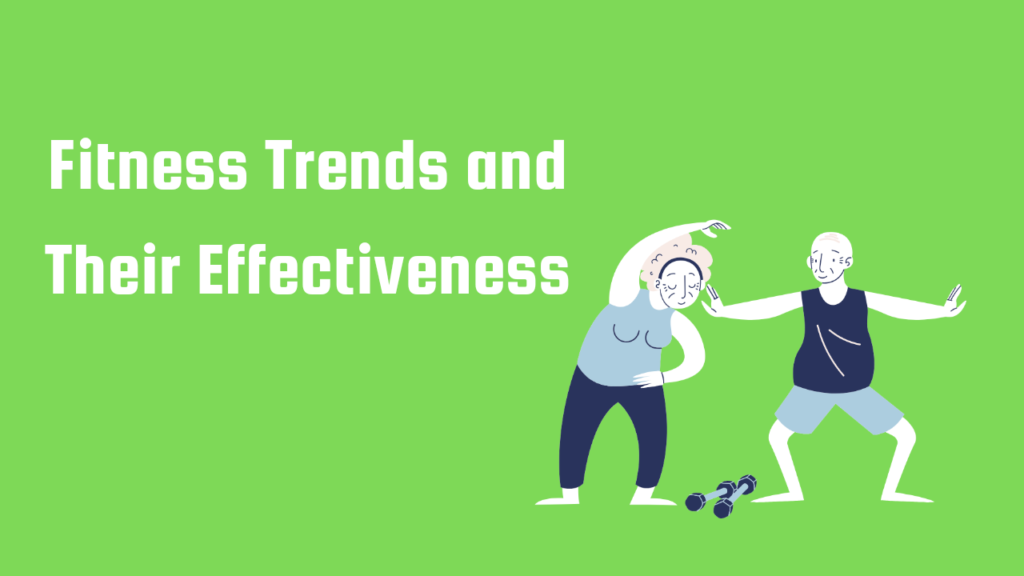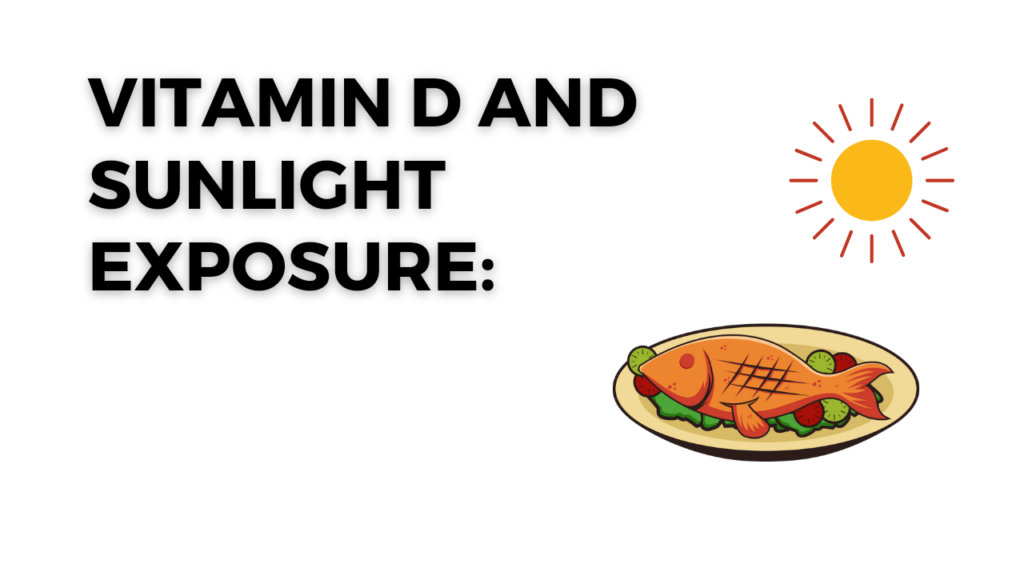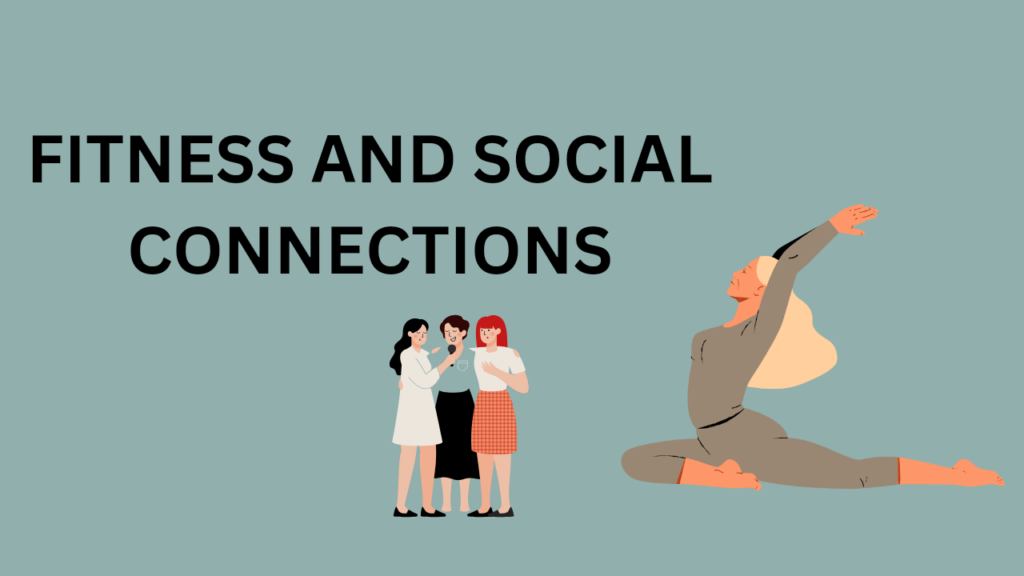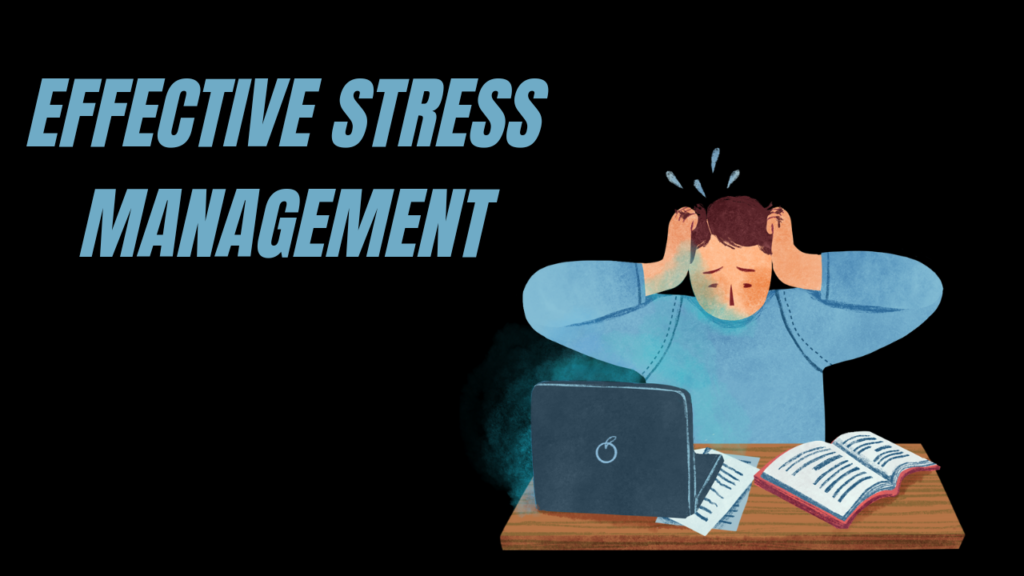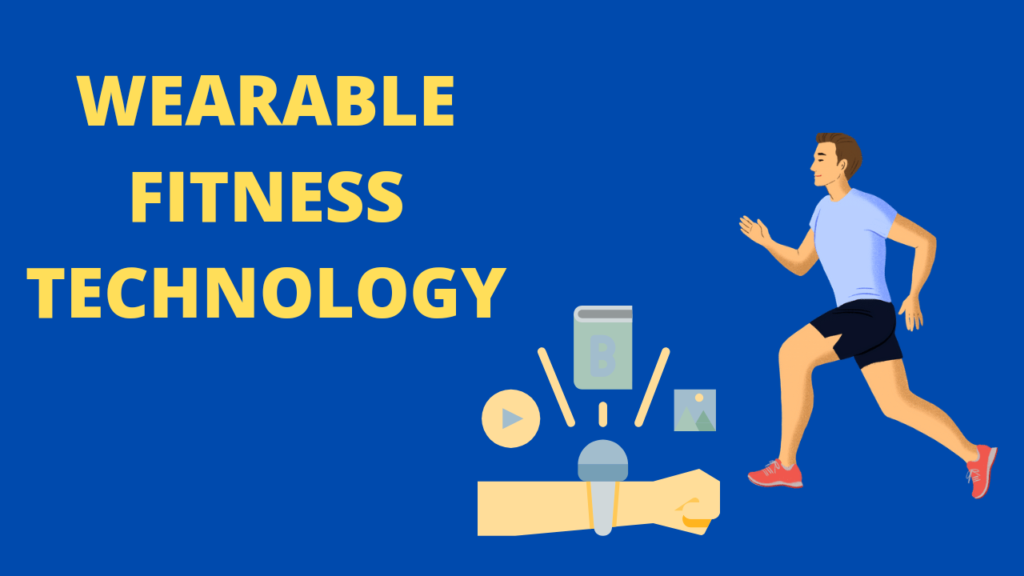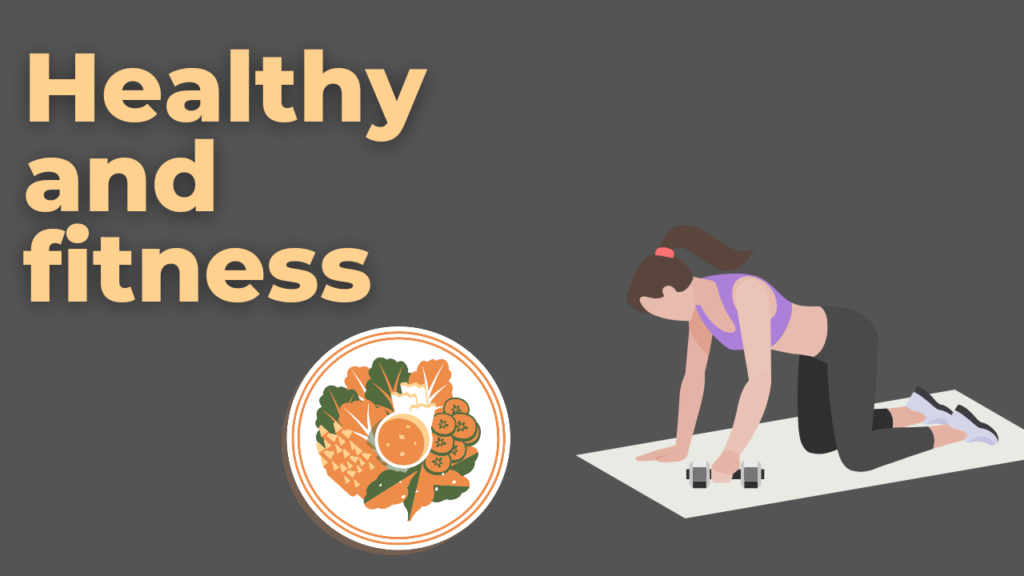FITNESS AND NUTRITION MYTHS
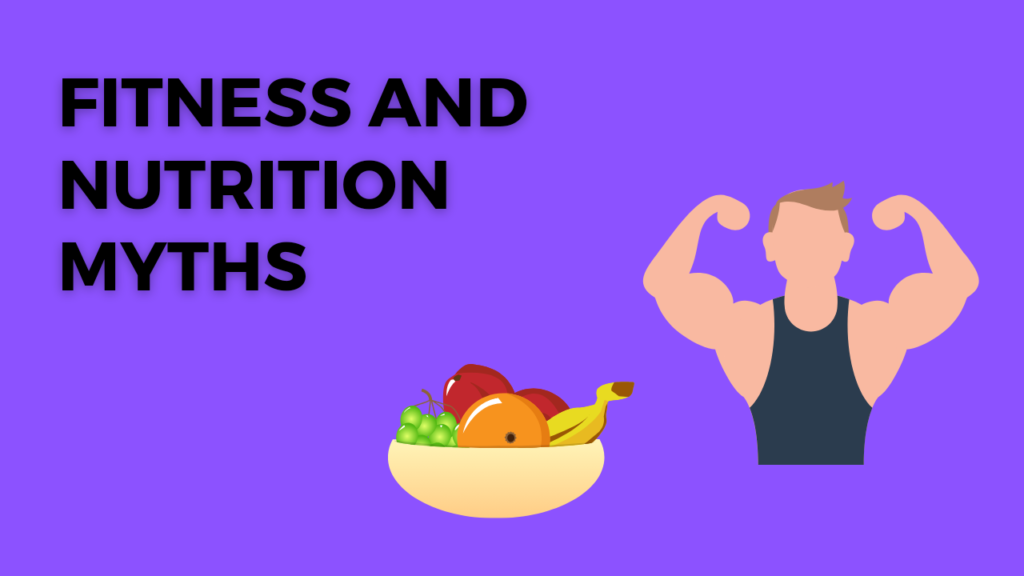
Sure, let’s debunk a few common fitness and nutrition myths:
- Fact: Spot reduction is a myth; overall body fat reduction is achieved through a combination of cardiovascular exercise and a healthy diet.
- Fact: Weight gain is influenced by overall calorie intake and expenditure, not just the timing of meals.
- Myth: Carbs are bad for you.
It’s about choosing complex, whole grains over refined carbs. - Myth: Lifting weights makes women bulky.
- Fact: Weight training is beneficial for women, helping to build strength and tone without necessarily causing bulk. Genetics, diet, and specific training plans play a role.
- Myth: Crash diets are effective for long-term weight loss.
- Fact: Crash diets often lead to temporary weight loss, but they’re unsustainable and can harm your health. Sustainable, balanced approaches are more effective.
- Myth: You need to detox your body regularly.
- Fact: The body has its own efficient detoxification systems (liver and kidneys). Drinking water and maintaining a healthy diet support these natural processes.
- Myth: Eating fat makes you fat.
It’s more about the type and quantity of fats consumed.
Remember, individual responses to diet and exercise can vary, so it’s essential to tailor advice to personal needs and goals.
Certainly! Here are a few common fitness and nutrition myths:
- Spot reduction works: Targeting specific areas for fat loss through exercises is a myth. Overall body fat reduction is key.
- Eating late at night makes you fat: Weight gain is about total calorie intake vs.
- Carbs are bad for you: Carbohydrates are an essential energy source.
- Crunches are the best for abs: While crunches can strengthen your core, they alone won’t give you a toned stomach. A balanced approach is needed.
- All calories are equal: The source of calories matters. Nutrient-dense foods provide more essential vitamins and minerals.
- Skipping meals helps with weight loss: Skipping meals can lead to overeating later. Regular, balanced meals are crucial.
- Supplements can replace a healthy diet: Whole foods provide a broader range of nutrients compared to supplements.
- Lifting heavy weights makes women bulky: Women typically lack the testosterone levels needed to build bulky muscles easily.
Remember, individual factors vary, and it’s essential to consider your unique needs and consult with professionals for personalized advice.
- Spot Reduction: You can’t target fat loss from specific areas by exercising those areas alone. Overall fat loss through a balanced approach is key.
- Detox Diets: Your body naturally detoxifies; extreme diets or cleanses are often unnecessary and may be harmful.
- Eating Late at Night: The timing of your meals matters less than the overall quality and quantity of your food intake.
- Carbs are Bad: Carbohydrates are a crucial energy source; it’s about choosing complex carbs over simple ones.
- No Pain, No Gain: While some discomfort is expected during exercise, extreme pain can indicate an issue. Listen to your body.
- Protein Overload: Excessive protein intake doesn’t necessarily build more muscle. The body has limits on protein synthesis.
- Crash Dieting: Rapid weight loss diets are often unsustainable and can lead to nutrient deficiencies.
- Cardio is the Only Way to Lose Weight: A combination of cardio and strength training is more effective for weight loss and overall health.
Remember, individual responses to fitness and nutrition can vary, so it’s essential to find what works best for you.
Sure, there are several fitness and nutrition myths out there. Here are a few:
- Spot Reduction: The belief that you can lose fat in a specific area by exercising that particular body part. In reality, fat loss occurs uniformly across the body.
- Eating Late at Night: The idea that eating late at night leads to more weight gain. It’s about total daily calorie intake rather than the timing of your meals.
- Carbs are the Enemy: Carbohydrates are an essential source of energy. It’s more about choosing complex carbs over simple ones.
- Detox Diets: Claims that certain diets or products can detoxify your body.
- No Pain, No Gain: While some discomfort is expected during exercise, pain is not always a sign of progress.
- Eating Fat Makes You Fat: Not all fats are created equal.
Remember, individual responses to exercise and diet can vary, and it’s always a good idea to consult with a healthcare or fitness professional for personalized advice.
Sure, here are a few common fitness and nutrition myths:
- Spot reduction works: Targeting specific areas for fat loss through exercises is a myth. Overall body fat reduction is necessary.
- Eating fat makes you fat: Not all fats are bad. Healthy fats, like those from avocados and nuts, are essential for your body.
- Carbs are the enemy: Carbohydrates are a crucial energy source.
- Eating late at night makes you gain weight: It’s about total daily calorie intake. Timing matters less than the overall balance.
- Lifting weights makes women bulky: Women typically don’t produce enough testosterone to build bulky muscles easily.
- Detox diets cleanse your body: Your liver and kidneys naturally detoxify your body. Specific diets aren’t necessary.
Always consult with professionals for personalized advice tailored to your needs.

